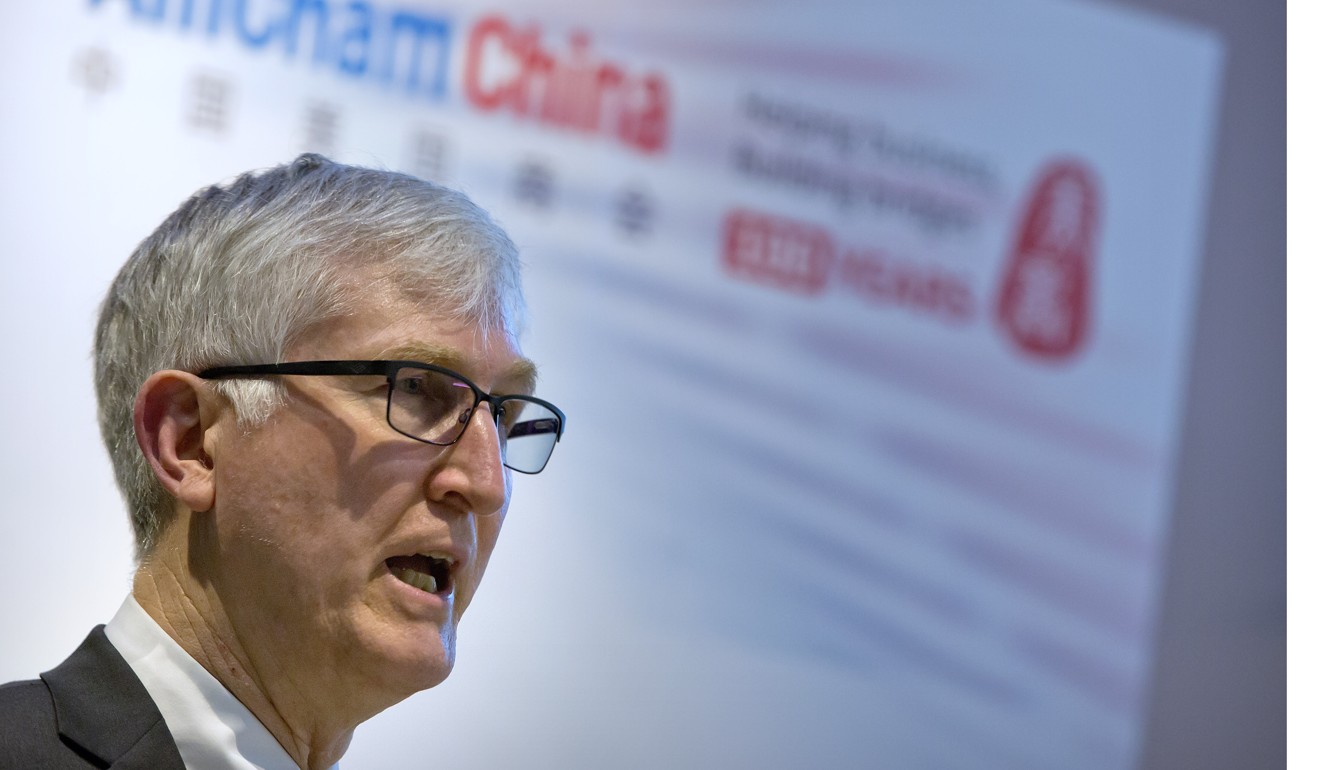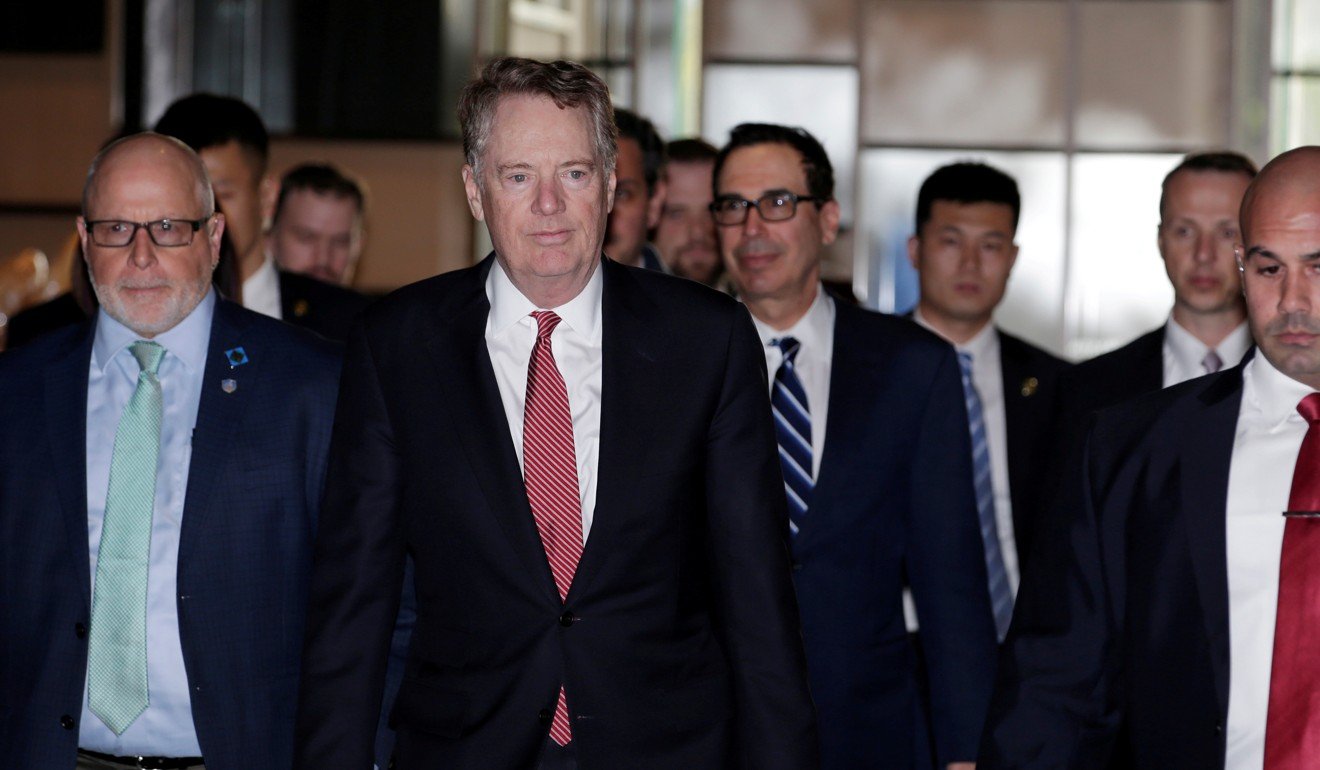
US firms less keen to make China’s case because of Beijing’s failures to live up to its promises, American Chamber of Commerce warns
- Report highlights long-standing grievances over market access and warns that repeated failures to live up to commitments are undermining trust

American businesses in China can no longer be relied upon as “positive anchor” in relations between the two countries after years of unfulfilled commitments, a report has warned.
The American Chamber of Commerce in China said on Wednesday in its newly published white paper on China’s business climate that restoring trust will be critical to overcome problems such as long-standing complaints about market access and the discriminatory barriers faced by foreign firms.
“As foreign companies have seen their prospects in certain industries narrowed because of China’s own goals for Chinese companies to take a certain market share in domestic markets, they have felt less enthusiastic about the opportunity to invest here,” Tim Stratford, chairman of the group and a former official at the US Trade Representative’s office (USTR), said.
“It doesn’t look as promising an opportunity as it did in the past, and therefore, they naturally felt less enthusiastic about working hard to try to advocate on some issues related to the US-China relationship.”
The AmCham report included recommendations on the further removal of market barriers for foreign investors, greater regulatory transparency, greater intellectual property protections and fair treatment of foreign and domestic companies – all of which are among the key issues at the heart of trade negotiations between Beijing and Washington.

“If any of these recommendations sound new to you, I would be very surprised,” Stratford added, noting China had long agreed to further open up its economy and tackle US companies’ concerns, but often failed to follow through.
Multiple rounds of talks have been held in both capitals since a tariff ceasefire was called last December, but a final trade agreement has yet to be signed as the two sides hash out details for an enforcement mechanism, which US Trade Representative Robert Lighthizer has said is central to a deal.
While trust between the world’s two largest economies has reached a low point, Stratford described the ongoing trade discussions as the “most extensive and most valiant” he has seen in the past two decades, approaching the intensity of talks for China to join the World Trade Organisation in 2001.
“The most important thing about the negotiations is not meeting some paper deadline. It’s continuing to make progress,” he said. “It’s making sure that the final deal is a really good deal that will hold together.”
“If either side doesn’t live up to the expectations of the other side, its important that there be some consequence so that this agreement is different from previous agreements that didn’t really change what was happening on the ground.”

Despite reported progress in the trade talks, with China agreeing to buy more US goods to reduce the yawning trade deficit, the chamber said its members in China were more concerned about longer-term structural issues that prevented them from operating on a level playing field.
Stratford also downplayed concerns that political issues between the major powers, such as the increased scrutiny of Chinese academics in the US, would become caught up in the trade talks.
There were also fears that US charges against Chinese telecoms giant Huawei would be used as a bargaining chip in the discussions, particularly after US president Donald Trump suggested he may intervene.
But Stratford said he had spoken to Lighthizer, who is leading the US negotiating team, and he had given an assurance that “we are only talking about trade, we are not talking about the other matters”.
“USTR negotiates trade policy,” Stratford said. “We don’t have one mastermind sitting behind and pulling all these strings to have all these things happen at the same time in some coordinated way.”